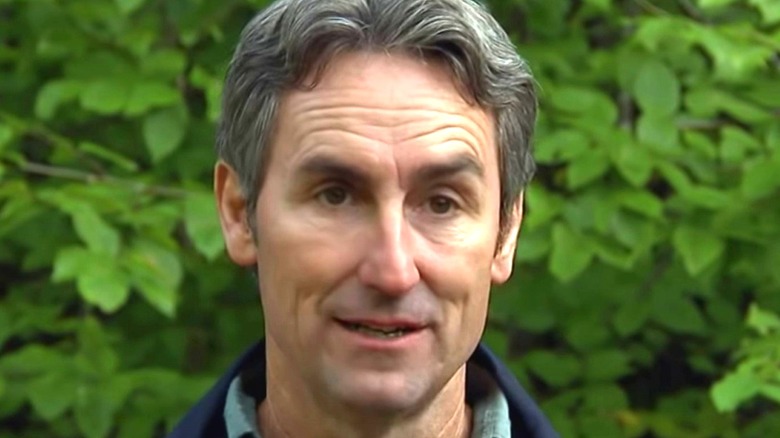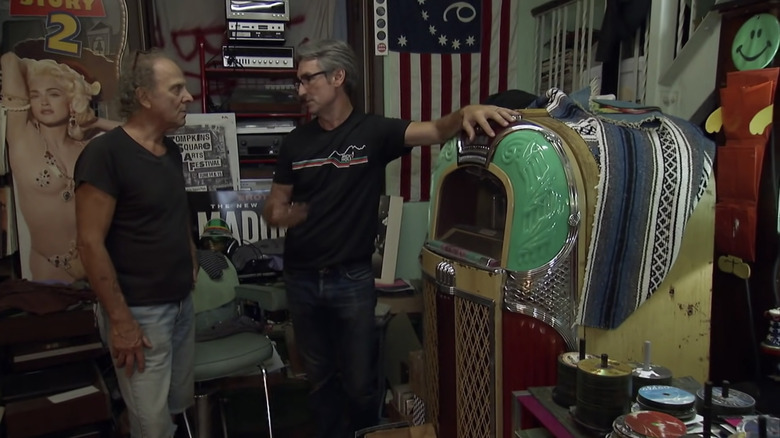Why American Pickers Actually Paid The Asking Price For A Rock-Ola Jukebox
Although the team from "American Pickers" may not be as notoriously stingy as the crew from "Pawn Stars," there are still plenty of times where series lead Mike Wolfe ends up haggling over some long-lost antique with an immense asking price. Part of the reason for this is because, unlike in "Pawn Stars," not everything that Wolfe buys is getting resold. While both Wolfe and former co-host Frank Fritz do actually own their own separate antique shops, each one has a fascination and love for antiques that extends far beyond their business.
As such, certain items (especially motorcycles and automobiles) will end up in Wolfe's own personal collection, and there are times when Wolfe will end up conceding to the seller while haggling. That said, there aren't many times when Wolfe will end up purchasing a big-ticket item without haggling at all, which is why his purchase of an authentic Rock-Ola jukebox in Season 20 was so unique.
Mike Wolfe planned to rent out the Rock-Ola jukebox for profit
In the episode, Mike Wolfe discovers a well-preserved, working 1948 Rock-Ola jukebox while picking through the collection of an Italian hairstylist named Jack. The jukebox itself represents an important part of American history. According to a history of jukeboxes posted on the Rock-Ola website, the 1948 model was an iconic staple of the Golden Age of jukeboxes that came about in the wake of World War II.
Wolfe initially sets the price at $1,100, which is already quite a lot considering the condition of the piece, and the fact that the tone arm inside needs to be repaired. Jack responds by upping the price to $1,500, and rather than fight back, Wolfe agrees almost instantly. Wolfe goes on to explain that he plans to rent out the jukebox at his store in Nashville, Tennessee, and as such, he thinks that he can make a decent profit on the purchase simply by renting out the Rock-Ola as a prop item. While the move may surprise fans who are used to seeing him haggle, during an interview with Robin Robins, Wolfe attributed a certain amount of his success as an entrepreneur to what he refers to as "my alternative energy, meaning thinking in angles, looking at things in [their] simplest form, and grabbing onto those thoughts."
Indeed, Wolfe's shocking decision to avoid haggling is completely in line with this type of thinking: as he finds an alternative angle to make his money back, he simplifies the business deal in the process.

